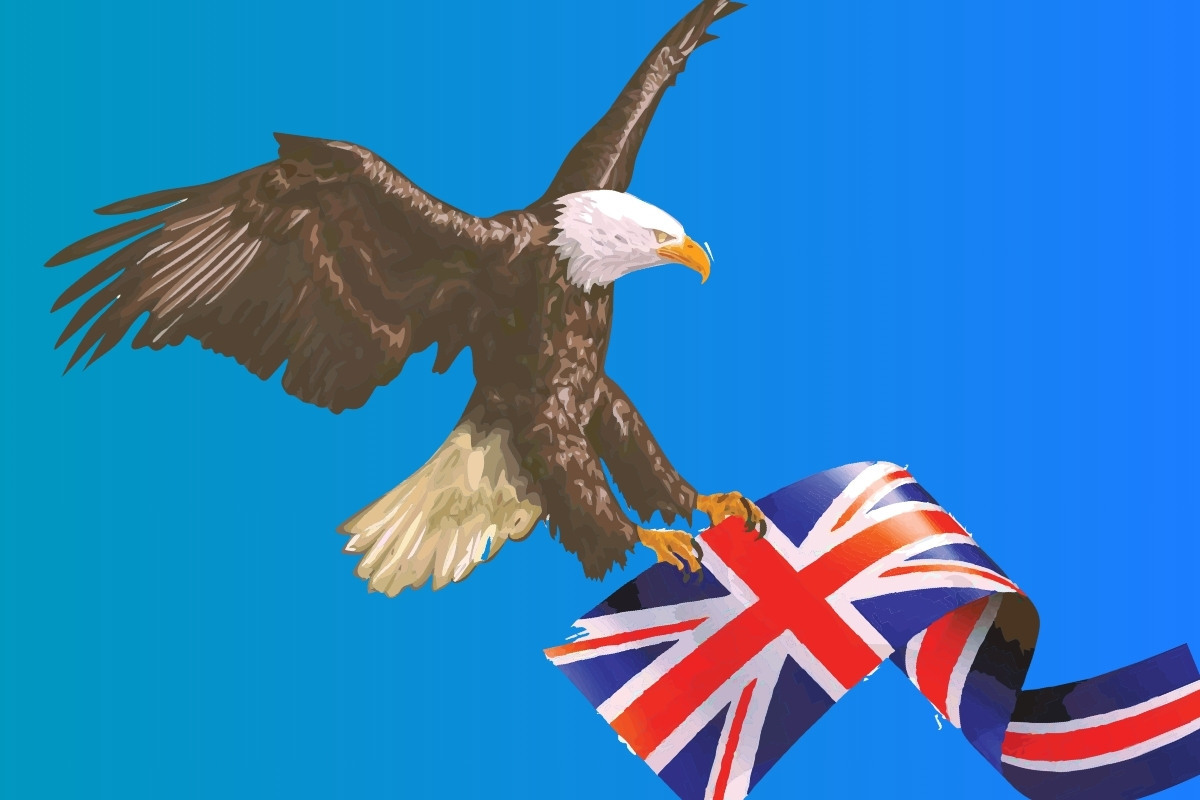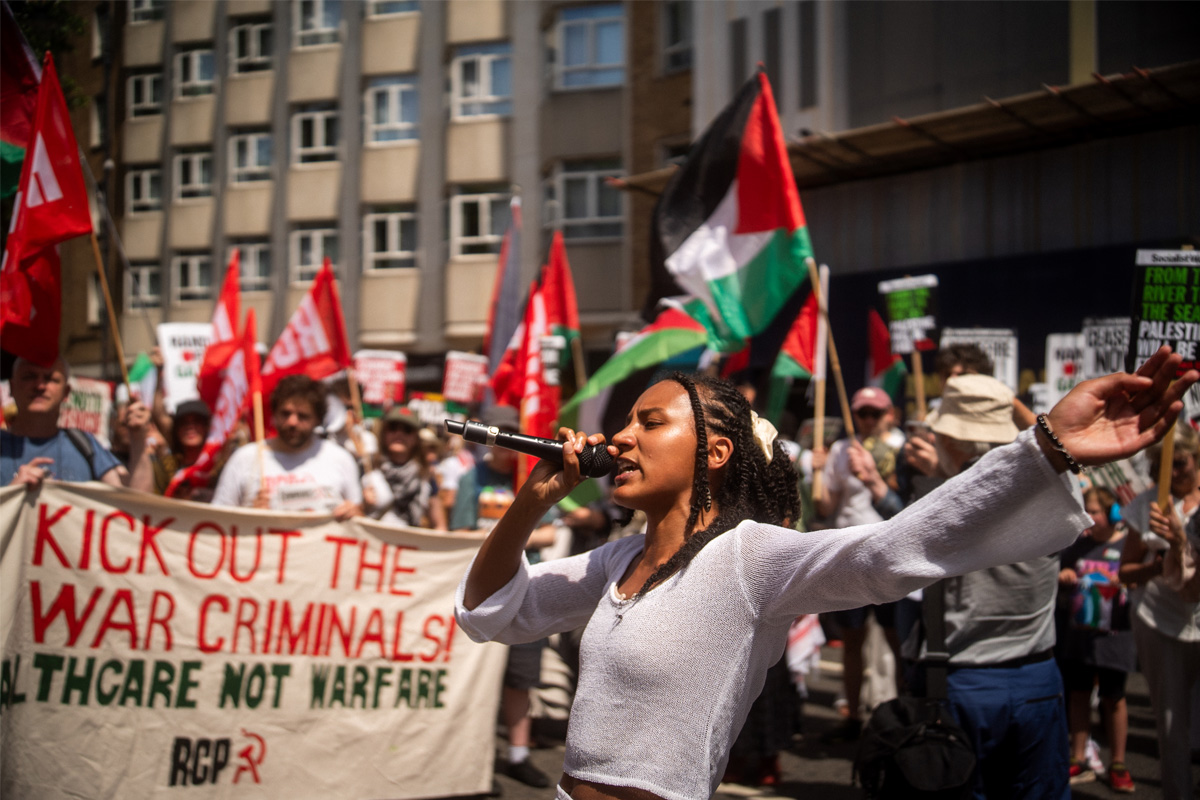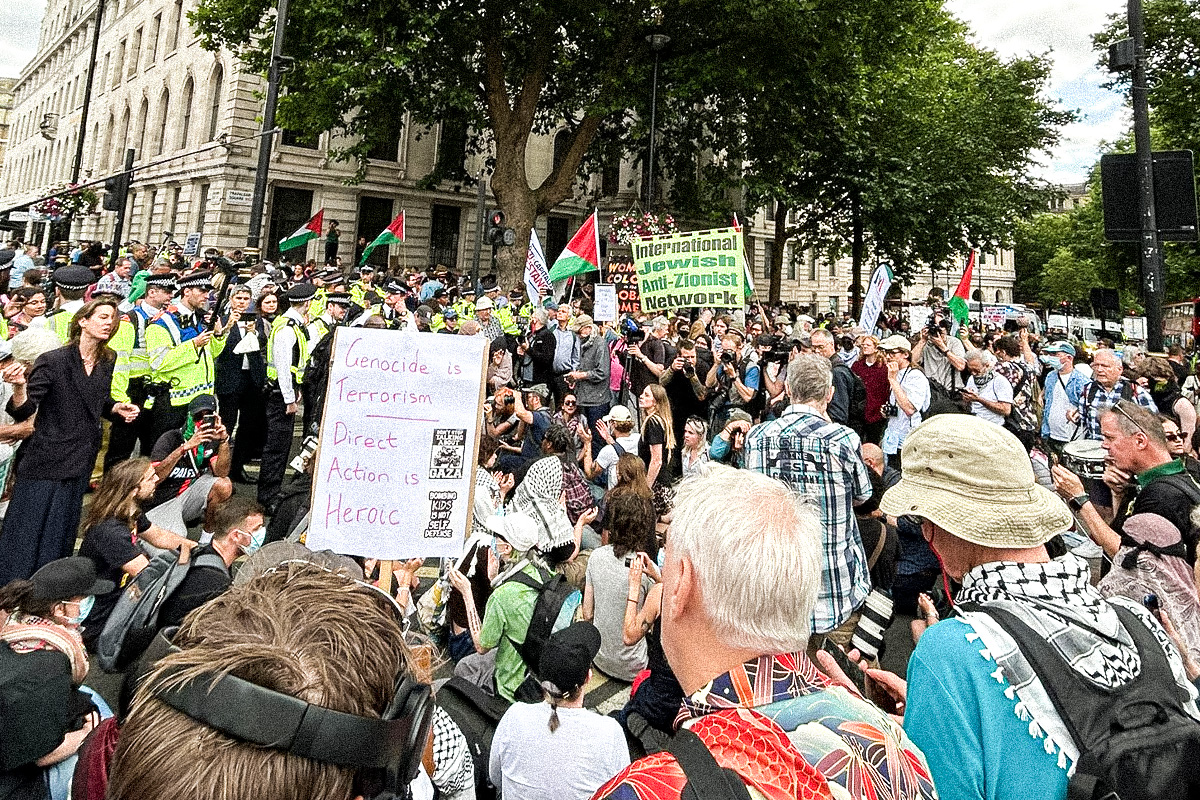Since his landslide victory in the Labour Party leadership contest, Jeremy Corbyn has come under attack from all sides of the British Establishment. One particular intervention stands out: that of an unnamed serving general in the British Army, who has openly stated that the could be a coup d’état if Corbyn became prime minister.
Since his landslide victory in the Labour Party leadership contest, Jeremy Corbyn has come under attack from all sides of the British Establishment. From being castigated in the press to being called “a serious risk to our nation’s security, our economy’s security and your family’s security” by the Prime Minister, Corbyn has been the subject of a concerted campaign of scaremongering, misinformation and slander. But behind the histrionics there is a very real fear that the veteran left-winger, who only a few months ago was considered the joke candidate in the leadership race, could actually become Prime Minister in 2020.
Most of all, it is the mass movement that has been inspired by Corbyn’s campaign and leadership, and which is now becoming active and organised, that the ruling class fears the most – a movement that has the potential to develop radical demands and thus threaten the whole rotten system that the Establishment defends.
One particular intervention stands out from all the rest however – that of an unnamed serving general in the British Army, who was reported in the Sunday Times as saying the following:
“Feelings are running very high within the armed forces. You would see a major break in convention with senior generals directly and publicly challenging Corbyn over vital important policy decisions such as Trident, pulling out of NATO and any plans to emasculate and shrink the size of the armed forces. The Army just wouldn’t stand for it.
“The general staff would not allow a prime minister to jeopardize the security of this country and I think people would use whatever means possible, fair or foul to prevent that. You can’t put a maverick in charge of a country’s security.”
When senior generals refuse to “allow” an elected government to carry out its programme by “whatever means possible”, this is generally considered to be more than a break in convention – such an event would generally be considered a coup d’état.
Should this threat be taken seriously or is it merely the ravings of an isolated individual? In Britain, the general consensus is that feudal relics such as the Monarchy are perfectly harmless and that a military coup could never take place in Britain due to its traditions of democracy and, above all, stability. In fact, faced with a genuine threat to the stability of its own rule, the British ruling class would not hesitate to use the considerable means at its disposal to protect its interests, upto-and-including the forcible overthrow of an elected government.
A very British coup
Coups of both the constitutional and military variety are extremely common throughout the capitalist world, particularly in the regions that are most exploited and oppressed by imperialism and the scars of colonialism, such as South America or Africa. In contrast, Britain presents itself as an island of tranquillity, where our ‘tamed’ monarchy and conformity to sacrosanct parliamentary norms makes anything as vulgar as a coup unthinkable. Despite this, the British military and secret services have twice (that we know of) made preparations for the overthrow of an elected prime minister, in 1968 and 1974.
In 1981 the Sunday Times revealed that in 1968, Cecil King (the boss of the Mirror Newspaper Group), had held discussions with a number of industrialists, politicians and high-ranking military figures about the “imminent fall” of Harold Wilson’s Labour government and the possibility of restoring order with Lord Mountbatten (Prince Charles’ great uncle and “mentor”) at the head of the government in the aftermath. Lord Zuckerman, who apparently stormed out of one of these meetings, wrote the following:
“Mr King had been talking about what he saw as the imminent disintegration of Harold Wilson’s democratically elected government; about the likelihood of civil disorder following, with bloodshed on the streets; about the possible need to call in the armed forces; and about machine guns at street corners…Mr King went on to say ‘that people would be looking for someone like Lord Mountbatten as the titular head of the new administration’, ending by asking whether Lord Mountbatten would agree to be the titular head of, presumably, a non-democratically elected administration. Call it what you will, this talk sounded to me like an invitation to participate in an action of treachery or treason.”
This plot evidently fell through, allegedly due to Mountbatten’s reservations; but again, in 1974, the possibility of a military takeover reared its head. In his book “Spycatcher”, Peter Wright told of a plot by MI5 agents to force Wilson’s resignation, apparently motivated by suspicions that he was a Communist spy. Agents even went so far as bugging Wilson’s office in order to record his conversation. However, the plot wasn’t limited to MI5. On two occasions – in January and June 1974 – the army put a “ring of steel” around Heathrow airport on the stated grounds of training for possible IRA terrorist action. However, the government had not been informed of these exercises and a senior aide and close friend to Wilson, Baroness Falkender has asserted that the exercises were in fact a practice run for a coup. In 2006, these suspicions were reinforced in the BBC documentary, “The Plot Against Harold Wilson”.
In this context, the unnamed general’s comments are far from ridiculous. In fact, they are perfectly in keeping with the nature of the state under capitalism.
Special bodies of armed men
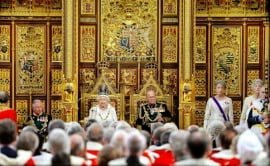 Marxists do not see the state as an independent and impartial guardian. The state, as an armed power, seemingly standing above society, has not always existed. Engels explained that the state is the product of society at a certain stage of development, when the irreconcilable antagonism between the different social classes in society (in short, the “haves” and the “have nots”) has reached such a heightened level that a body capable of “keeping order” (in the interests of the oppressors) is of vital necessity.
Marxists do not see the state as an independent and impartial guardian. The state, as an armed power, seemingly standing above society, has not always existed. Engels explained that the state is the product of society at a certain stage of development, when the irreconcilable antagonism between the different social classes in society (in short, the “haves” and the “have nots”) has reached such a heightened level that a body capable of “keeping order” (in the interests of the oppressors) is of vital necessity.
In so-called “normal” times, where the class struggle is more subdued, the state can often appear as a mediator, seeking to find the most favourable course for all its citizens (as New Labour’s “Third Way” in the 1990s attests). However, in times of crisis, in which the fundamental contradiction between the “haves” and the “have nots” becomes increasingly acute, the state will invariably move heaven and earth to protect the fundamental interests of the ruling class. In the last analysis, the state can be reduced down to “special bodies of armed men” (to use Lenin’s expression) in defence of private property.
First and foremost, the duty of any capitalist government, elected or otherwise, is to protect and promote the security and prosperity of its own ruling class. When huge banks such as the Royal Bank of Scotland collapsed in 2008, Gordon Brown’s Labour government was first into the breach, committing billions in public money to shore up the tottering financial system. Now, the shares bought by the state are being sold off to private interests at a loss, whilst the rest of the British population continues to pay for the crisis in the form of unemployment, low pay and public sector cuts. Not for nothing did Marx explain that the executive of any bourgeois state is “a committee for managing the common affairs of the whole bourgeoisie”.
Of course, the state is much more than just the government: an influential layer of high-ranking civil servants maintains the continuity of the capitalist state through the suffocating weight of bureaucracy; Her Majesty’s Revenue & Customs has long been known to make “sweetheart” deals with tax-dodging corporations; the unelected House of Lords also provides a counterweight to any disruptive legislature issuing from the Commons; the police have been proven to have used undercover officers to spy on trade unionists and environmental campaigners; the courts can readily be employed as bailiffs for the ruling class; and, of course, the military (headed by the Queen, not the Prime Minister), a professional body, isolated from society at large, which exists to protect the interests of British imperialism both abroad and at home if necessary. The above quoted general’s comments stem from this fundamental purpose.
The importance of the royal family should also not be underestimated. The Queen may be widely seen as the Nation’s Nan but Her Majesty’s very existence provides the constitutional basis for a coup. As the Head of State the Queen has certain powers, such as the power to dismiss the government, dissolve parliament or command the armed forces. In the exercise of these powers the Queen is answerable to no one, except of course the rule of the rich and powerful. The fact that these powers have only very rarely been used does not disprove their fundamentally reactionary character, nor can it prove that they would not be used in an anti-democratic manner in a period of sharp crisis.
Could this happen today?
The dates of the two aborted coup attempts are particularly interesting. 1968 was a year of revolutions all over the world. The post-war boom, and the political stability it engendered, was drawing to a close and Britain had a Labour government imposing heavy taxes on the rich. By 1974 the boom years were well and truly over, Edward Heath’s Conservative government had been toppled by the mass mobilisation of workers, and Wilson was back in power.
Harold Wilson was no revolutionary. Serious discussions about the need to “call in the armed forces” were taking place at that time. not because of any radicalism on Wilson’s part, but because the pressure of the working class on the one hand and the ruling class on the other was straining the limits of parliamentary democracy. An alternative means of restoring ‘order’ had to be prepared. To assume that no such alternative would be considered today would be naïve.
Any government which comes to power in Britain in the current period will be faced with economic and social crisis. In order to maintain Britain’s pathetic ‘recovery’ the Tories have had to take measures which have increasingly destabilised the political situation. With another world slump on the horizon, any government being formed in 2020 will have no room for manoeuvre if it seeks to maintain the capitalist system. In this context, the anonymous general’s comments are not far-fetched in the slightest.
As a backbencher, Corbyn could easily be ignored as an oddity; but as the leader of a mass party, capable of winning millions of votes in a general election, this oddity poses a dire threat to the interests of the ruling class and its state, not least the armed forces. To paraphrase the general in question, “It’s all very well winning an election but if you think you can stop us from doing our job, you’ve another thing coming.”
Defend Corbyn! Fight for Socialism!
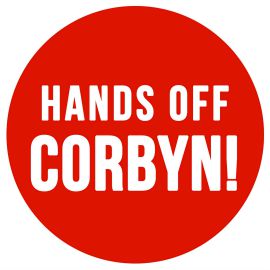 What then could a putative Corbyn government do in this situation?
What then could a putative Corbyn government do in this situation?
As was shown by the defeat of the 2002 coup in Venezuela, the only force capable of successfully opposing the military conspirators is the masses, mobilised to protect their government and their leader. But the masses do not have unlimited reserves of energy. In order to survive the movement must move forward and deliver on its promises.
This is the task which confronts the leaders of every mass anti-austerity movement on Earth: capitulate and carry out austerity; or take on the bosses and their servants in the state, break with capitalism, and build a new society free of exploitation and oppression.
This is why we say to defend Corbyn, we must fight for socialism!




